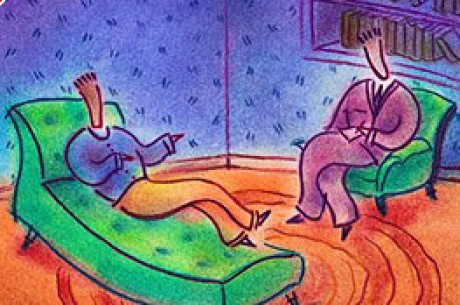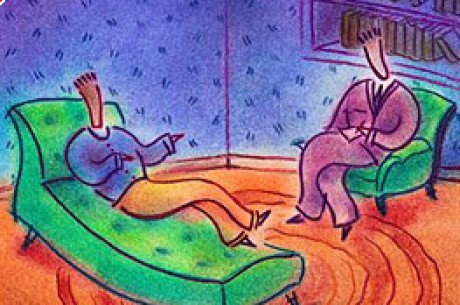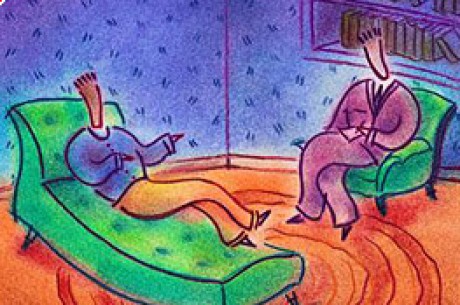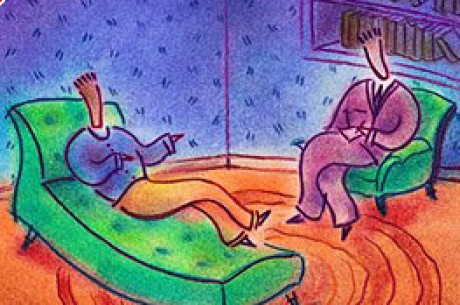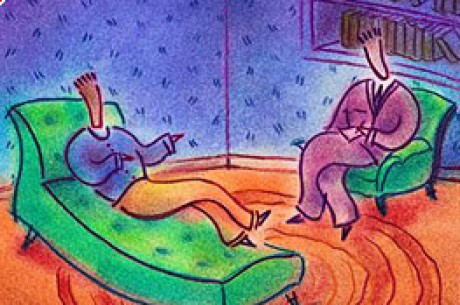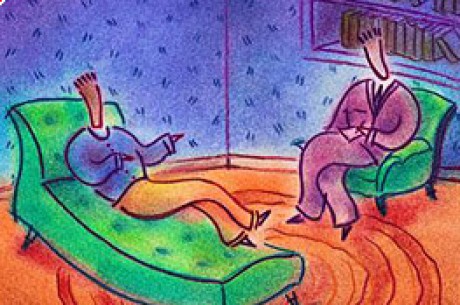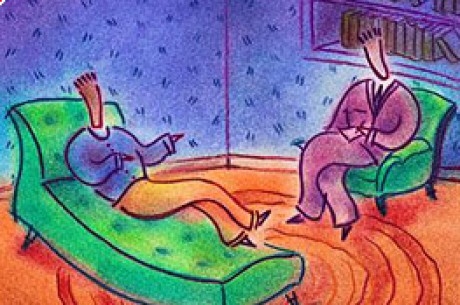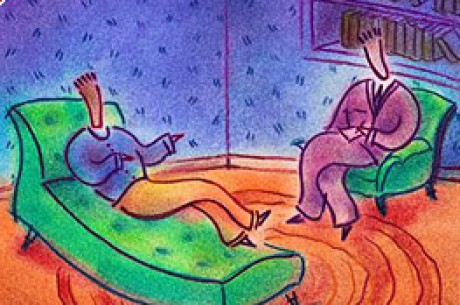The Poker Counselor's Corner (9)

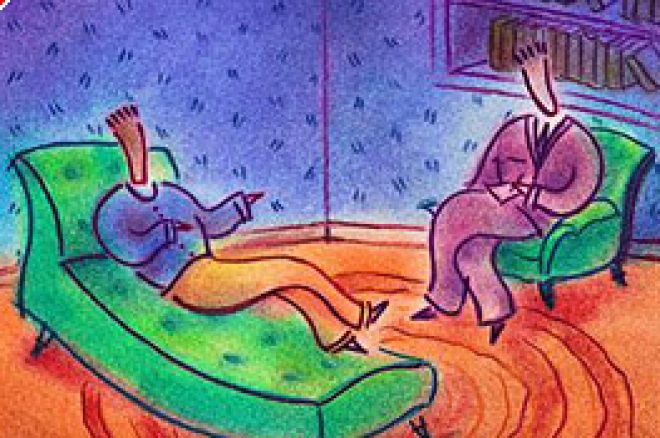
Editor's Note: In addition to being a poker enthusiast, gambling columnist, and lecturer, John is a National Certified Counselor (NCC) and practices in his home state of Pennsylvania. He has a Master of Arts degree in Counseling from West Virginia University, and a Bachelor's degree in Psychology with a minor in Sociology from Lock Haven University. You can arrange for interviews, speaking engagements, or ask your question to "the Poker Counselor" at [email protected].
Why is it that I read all these books by professional players, writers, and teachers and I understand for the most part everything they are saying, but when I head to the poker table I seem to lose a lot of the information I read? I become too excited and anxious when I hit the table. Do I just need to spend more time focusing and writing things down? Are there any good poker books that you would consider when it comes to odds (Pot Odds, odds of making my hand, etc...) and probabilities? - Posted by gr8 babe at pokernews.com forum.
One of the families that I work with in the Counseling realm has two 16 year old kids (twins, one boy and one girl). Both of them are having difficulty getting their driver's license. The boy is a very confident and capable driver. There is no doubt that he would be able to pass the driving portion of the state's required test, but he has taken and failed the written portion of the exam several times. His sister, on the other hand, has passed the question and answer portion easily with nearly perfect scores. Unfortunately, she becomes so nervous and unsure of herself during the driving part of the test that she has failed three times. She has hit the orange cones, pushed the gas when she meant to hit the brake, and once stopped the car for a few moments to break down and cry!
Their woes with the driving exam are not so different than your battles with poker concepts and learning. Rote memorization abilities have helped the girl to pass the written exam. That knowledge has not truly helped her to become a more successful driver, though. The boy has allowed for his experience and confidence to produce a good driver, but he cannot master the information that he needs to recall during the testing. Poker is obviously an applied knowledge. You will get no bonus points at the table for being able to figure pot odds correctly like it is a Math test or identify the emotions with tilt as if it were a Psychology test. You have to USE the information that you gather, and use it correctly.
To achieve this, take it slow!! Say I give you a Math book that starts with basic 1+1= 2 addition and ends with advanced calculus. Nobody could ever expect you to read through the book and be at the level of a Math Professor by the end! Instead, you would read one section, practice, re-read, clarify questions, practice some more, etc. When you mastered one section, then you would be comfortable to move on to the next. Do the same with poker. If you are reading on pot odds, first do basic homework. Calculate during free "play money" games online as initial attempts. Maybe give them a shot during a loose and fun home game.
If you get too anxious or excited to remember the task you've set-out to employ, use a visual or mental cue as a reminder. For instance, a poker buddy of mine caps his hole card with a Philadelphia Eagles trinket. Whenever he is faced with a tough decision at the table, he often rolls the Eagles emblem between his fingers. I have instructed him to go through a mental checklist to evaluate his next move every time he finds himself doing that. I've also instructed players to use the button position, dealer's comments, and even the appearance of the cocktail waitress as visual/audio cues! Such cues will help you stay focused and mentally sharp at the tables.
As for books, you have to read Brunson's Super System. I have not delved into his 2nd installment as of yet, but I would feel comfortable giving it a blind endorsement by knowing some of its contributors. For pot odds and probability, David Sklansky's stuff is usually the most informative. Google the name George Epstein for some good articles on the topic, as well.
I often cash during online and live tournaments (2nd place-7th place usually) but I have yet to win one. My friends say that I should be happy since I am making money and haven't been playing too long. So, is it actually good or not? - Submitted by EBGB via email
This seems like a pretty simple one for me to respond to. I can't tell you if that is good enough, and your friends cannot either. You have to set your own direction. You must set your own goals. It frustrates me to see so many books, articles, and chat forums promoting the idea that "success" is pulling in 2 big bets an hour, cashing in a certain percentage of your tournament buy-in's, or other arbitrary numbers. The way that we measure our own success and failure in poker is a personal endeavor. Since you mention that you are a relatively new player, one important goal that I would suggest is the following: Get better every time you play. After every session that you play evaluate what you did that worked and what failed. Think about the times you felt confident, and the times you were uneasy and defensive. As a new player, I'd rather have you learn and lose than win with no improvement. Now go make it happen.
KEEP THOSE QUESTIONS COMING! [email protected]
Ed Note: Ultimate Bet has more satellites to more big tournaments than anyone else.

